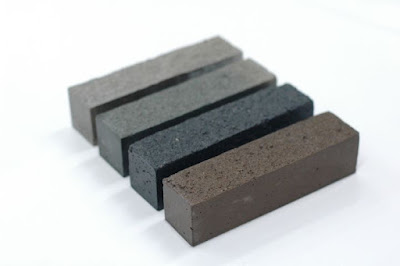Geopolymer Market: Evaluating Environmental Impact And Life Cycle Analysis During The Forecast Period From 2022-2028
 |
| Geopolymer Market |
Inorganic
ceramic geopolymers that form non-crystalline networks are the most common
type. They can be utilized for new concrete cements, medical applications,
heat- and fire-resistant coatings, and adhesives.
The Geopolymer market has gained considerable attention in
recent years due to its potential to revolutionize the construction industry
with more sustainable and eco-friendly alternatives to traditional cement. As
the world faces increasing environmental challenges, the need for greener
construction materials has become more urgent, and Geopolymer is positioned as
a promising solution. In this context, evaluating the environmental impact and
conducting a life cycle analysis of Geopolymer materials becomes essential to
understand their true potential and benefits.
In contrast Geopolymer
Market production process
generates minimal carbon dioxide, making it a much greener option.
To comprehensively assess the environmental impact of
Geopolymer, a life cycle analysis (LCA) is conducted. LCA is a systematic
evaluation of the environmental impacts of a product throughout its entire life
cycle – from raw material extraction to production, transportation, use, and
disposal. It helps identify potential hotspots and areas for improvement to
ensure the material's overall sustainability.
Market Segmentation
·
Polypropylene
Polyethylene
·
The
global geopolymer market is divided into the following categories based on
application:
·
Binders
Slag-based Binders Rock-based Binders
·
based
on fly ash Binders Grouts Concrete Others
·
The
global geopolymer market is divided into the following categories based on end
use:
·
Infrastructure
for Building and Construction
·
Fire
Protection
·
Other
Pipe Protection & Coating
In the raw material extraction phase, Geopolymer offers
advantages over cement as it can utilize various industrial by-products like
fly ash, blast furnace slag, and other waste materials, thereby reducing the
demand for virgin resources. This not only reduces the environmental impact
associated with raw material extraction but also aids in waste management.
During the production phase, Geopolymer has a lower energy
requirement compared to cement. The absence of high-temperature kilns in
Geopolymer production contributes to lower energy consumption and,
consequently, reduced greenhouse gas emissions. Furthermore, the alkaline
activators used in Geopolymer production can often be sourced from more
environmentally friendly alternatives.
The transportation phase may vary depending on the proximity
of the Geopolymer production facility to the construction site. However, the
use of locally available industrial by-products for Geopolymer production can
help mitigate transportation-related emissions.
Key Players
Banah UK Ltd.,?eskch Lupkovch Závodech AS, Wagners, Imerys
Refractory Minerals, Clock Spring Company, Inc., Nu-Core, PCI Augsburg GmbH,
Kiran Global Chem Limited, Zeobond Pty Ltd, URETEK, and others are participants
in the global geopolymer industry.
Transformer steel and silicon steel are other names for Electrical
Steel. It is frequently employed in the production of motors,
inductors, transformers, batteries, and welding apparatus because of its
changed magnetic properties. Since lamination techniques can decrease energy
loss, emit little carbon dioxide, and increase the effectiveness of electric
motors, they are also utilized in the cores of electrical devices.
In conclusion, Geopolymer materials have demonstrated
significant potential to reduce the environmental impact of the construction
industry. Through a thorough evaluation of their life cycle, it is evident that
Geopolymer offers a more sustainable alternative to traditional cement. By
utilizing industrial by-products and adopting greener production processes,
Geopolymer can contribute to a more eco-friendly and sustainable construction
sector, helping to address environmental challenges while building a more
resilient future



Comments
Post a Comment